The 5th Asia-Pacific Coral Reef Symposium (APCRS) was held in Singapore from 19th to 23rd June 2023, hosted by the National University of Singapore with the National Parks Board as the partner agency. With the theme ‘Coral reef science and management in a rapidly changing world’, the 5th APCRS acted as a forum for reef scientists and managers to present, discuss and integrate the science and conservation of Asia-Pacific coral reef ecosystems. A total of 892 attendees, organisers, and volunteers from 41 countries and territories presented 462 talks and 230 posters. They also participated in multiple fieldtrips, workshops, and enjoyed seven plenary talks from coral reef research and conservation leaders. The meeting enabled the region’s scientific community to come together and create new paradigms to meet the key challenges facing coral reefs in the Asia-Pacific.
APCRS Organising Committee.
*****
Declan Stick PhD candidate at AIMS@UWA, Australia.
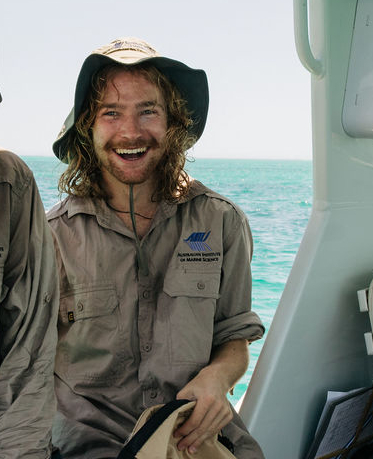 Can you tell us a bit about yourself and your research interests?
Can you tell us a bit about yourself and your research interests?
I grew up exploring, surfing, and diving along Western Australia and the iconic Ningaloo Reef. It’s a beautifully wild and raw landscape filled with unique fauna and flora found nowhere else on Earth. Like many Western Australians, I’ve always had the impulse to surround myself with nature, I just went a little bit further and decided from an early age that I would spend my life trying to conserve and study it.
Yet, it wasn’t until the second year of my undergraduate degree that I became fixated on coral health. My fascination with coral was cultivated from a phase of watching documentaries showcasing the devastating impact of coral bleaching and subsequently spending two weeks in the amply named Coral Bay doing small research projects. From then on out I made it my goal to find a project on coral health and heat tolerance and that’s exactly what I did.
I now am happy to call myself a coral ‘reef-searcher’, part way through my PhD, studying the genetic mechanisms underpinning heat tolerance in coral. That is, the DNA code found in coral that may help it to acclimatise and adapt to a warming ocean. Specifically, my research aims to (1) Identify gene regions associated with bleaching resistance using a genome-wide association study, (2) Identify microbial community differences between heat resilient and susceptible coral colonies and (3) identify gene expression response and recovery patterns in bleaching resilient and susceptible coral colonies.
You won the Best Poster award at APCRS 2023, can you briefly explain the research you presented?
My APCRS Poster presentation was on the 1st chapter of my PhD, titled, Unravelling the Genetic Footprint of Resilience: A Gene Expression Study on Acropora tenuis at the Ningaloo Reef, Australia. In this chapter, I aim to assess the response and recovery patterns of A. tenuis colonies from Bundegi Reef in north-western Australia during and after heat stress.
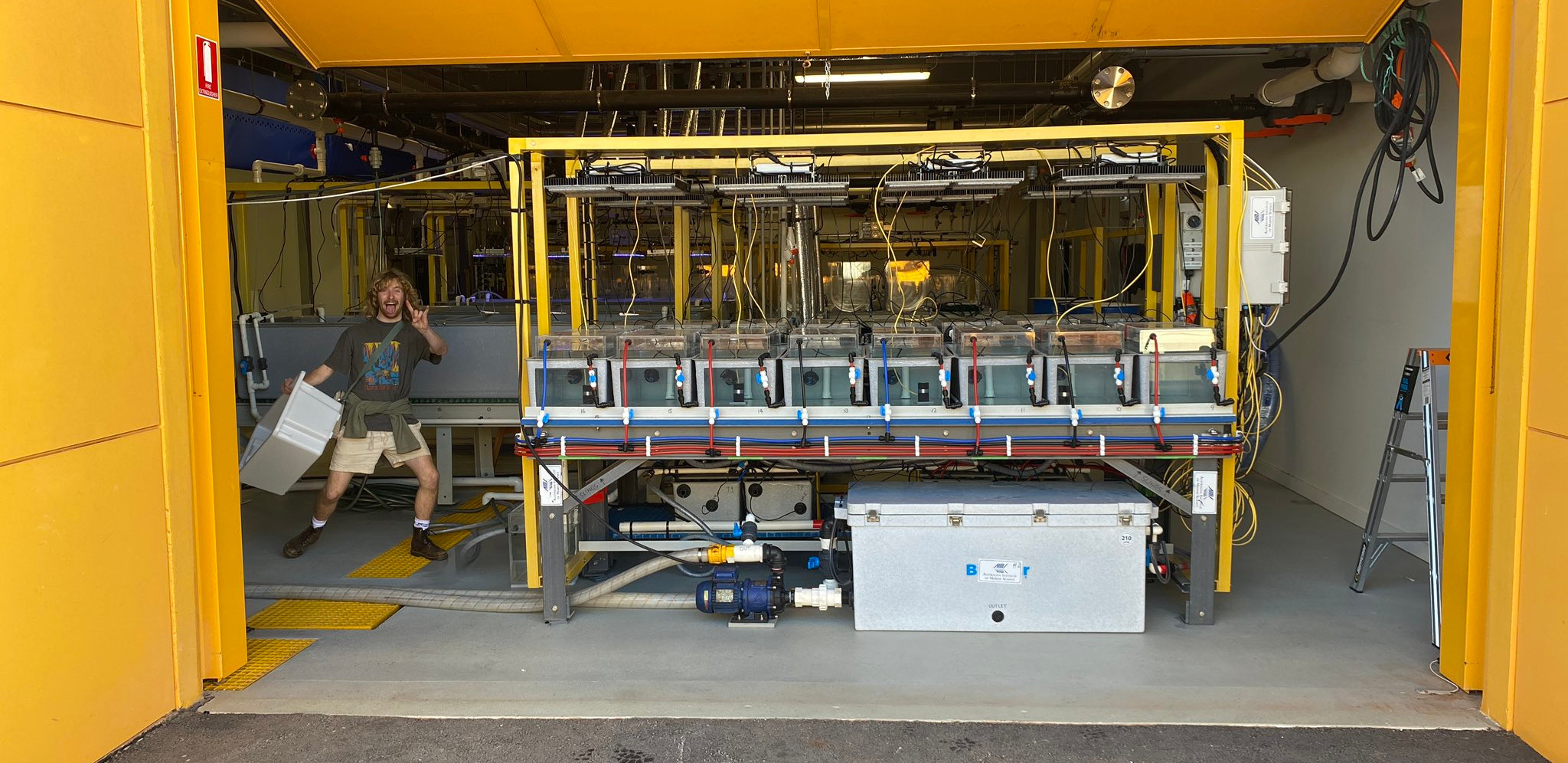
Preliminary heat-stress experiments suggest there is significant colony variation in the physiological (photosynthetic efficiency and pigmentation) response to temperature stress, and further that the physiological bleaching response happens across a very small temperature window (1°C). To explore this, we are now in the process of characterising differentially expressed genes (DEGs) between colonies with high and low bleaching tolerance compared with control conditions (i.e., transcriptomics), offering an alternative and effective way to assess the physiological responses and recovery patterns of the coral holobiont during and after heat stress. To identify the underlying gene expression patterns, we exposed 10 A. tenuis colonies to short-term (24 h) heat stress with peak seawater temperatures ranging from their Mean Monthly Maximum (MMM) of 27 °C (baseline) to 33 °C, 34 °C, and 35 °C. Coral fragments from all 10 colonies were dispersed over 12 replicated flow-through tanks so that fragments from each colony (i.e., genotype) were in each treatment condition. Corals were sampled at 3 h and 6 h during the heat stress as well as after a recovery period (24 h). Understanding the genetic mechanisms behind these rapid recovery trajectories and rates of transcriptome plasticity is expected to have profound impacts on the recovery capacity of corals.
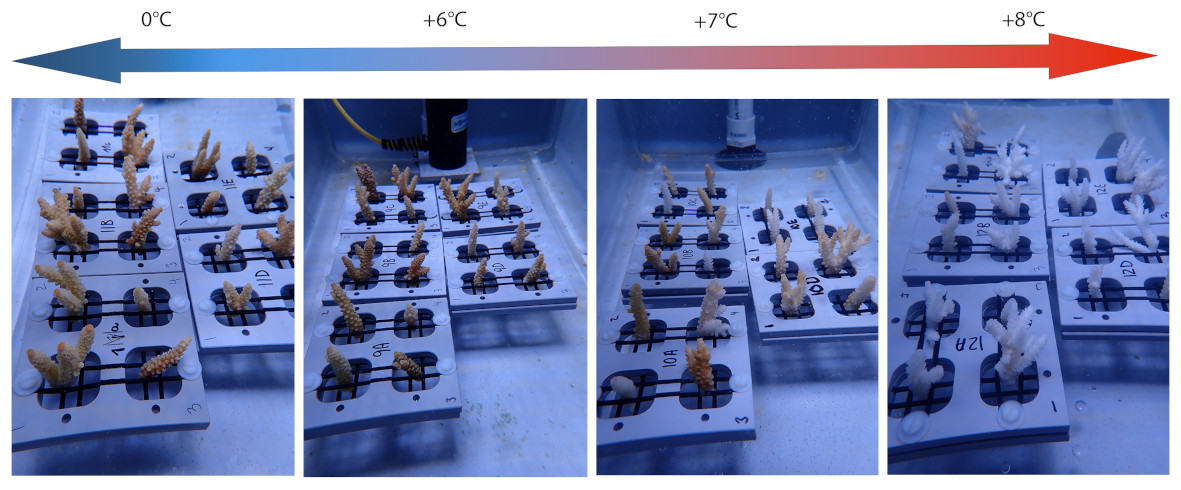
How will you continue to build on this research?
Building on this research, I hope to include a seasonal and regional comparison, including both summer and winter heat-stress experiments from multiple reefs along Western Australia. Furthermore, my PhD is part of a larger AIMS-UWA-Mindaroo Coral Resilience Project that will use the Mars Assisted Reef Restoration System (MARRS) as the experimental platform for testing trade-offs in bleaching resistant corals, and for measuring key ecological parameters associated with the artificial reef structure (and associated community), to better inform approaches to management and restoration across the broader ecology of the region. Knowing these will help inform future conservation and restoration efforts as the environment changes.
Juliano Morais PhD candidate at James Cook University, Australia.
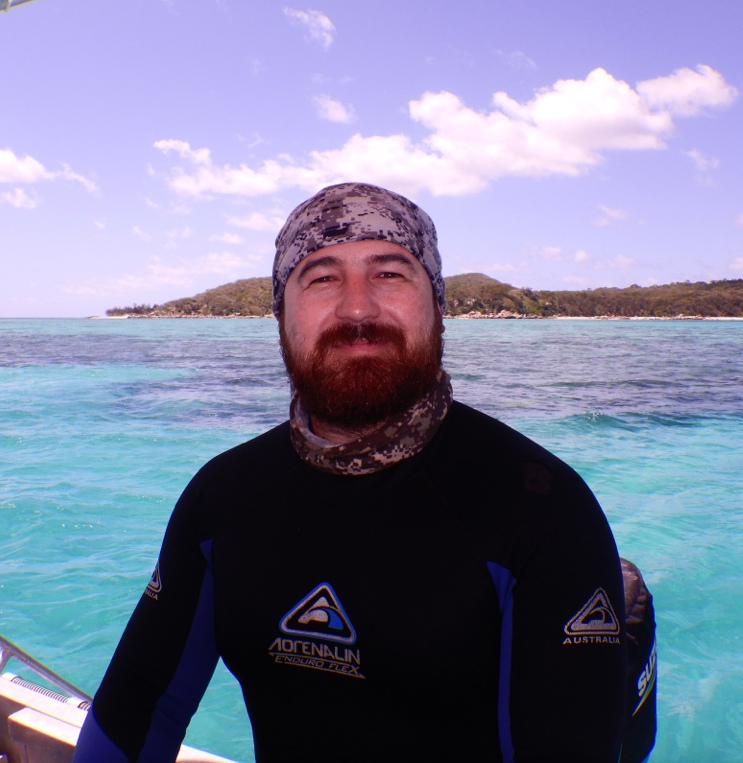 Can you tell us a bit about yourself and your research interests?
Can you tell us a bit about yourself and your research interests?
I grew up in Brazil more than 1000 km from the coast, where I undertook a Bachelor in Biological Sciences at the Federal University of Goiais. In 2016, I moved to the Northeast coast of Brazil to do my Master’s degree at Federal University of Paraiba and get closer to my great interest and passion: marine life diversity. During my Master’s, I worked with coral reef diversity and also collaborated with the creation of a 422 km2 marine protected area in the state of Paraiba. After completion, I decided to move to Australia to dive deeper in this field and, in 2020, I joined Professor David Bellwood’s lab to do my PhD focusing on how bleaching events driven by climate change affect the dynamics and functioning of coral communities.
What first interested you in this field of research?
When I arrived in Australia to start my PhD, I was amazed by severely damaged reefs after devastating bleaching events in 2016 and 2017. All the photos I saw when I was still in Brazil did not correspond with reality on my first dive in the Great Barrier Reef. It was then that I became determined to understand how these bleaching events impacted coral population dynamics. As the frequency and intensity of bleaching events continue to increase, the future of corals in the face of climate change has become an urgent concern. This sparked my interest in studying population dynamics, long-term monitoring and using demographic data to explore the profound consequences of this threat to coral reefs.
You won the Best Oral Presentation award at APCRS 2023, can you briefly explain the research you presented?
At the APCRS I talked about the erosion in dead coral colonies. Carbonate budgets dynamically balance production and loss of calcium carbonate (CaCO3) on coral reefs. To sustain or expand the coral reef framework, CaCO3 production by calcifying organisms must be higher than erosion. Physical structure of reefs is vital for maintaining the abundance, diversity and ecosystem functioning of reef-associated communities and key services to people, such as coastal protection from inundation during storms. However, the persistence of this reef structures may be at risk due to the increasing impact of climate change on coral reefs. In the talk I examined the erosion rates of dead coral colonies of complex growth forms. Specifically, we investigated how long coral skeleton structure persisted for as well as quantified the erosion rates of individual dead coral colonies. We also examined how factors commonly believed to underpin erosion rates on reefs related to variability in erosion rates of the dead corals. Importantly, it is believed that dead coral colonies are an integral component in the formation of the reef matrix. However, contrary to these expectations, we found intense dead coral colony erosion with approximately 80% of dead colonies completely disintegrating within 60 months. We also found that neither estimated parrotfish erosion nor exposure level or coral growth form, were capable of explaining observed variation in coral erosion rates. These results suggest we may need to re-evaluate the role of complex growth form corals in reef building and associated processes.
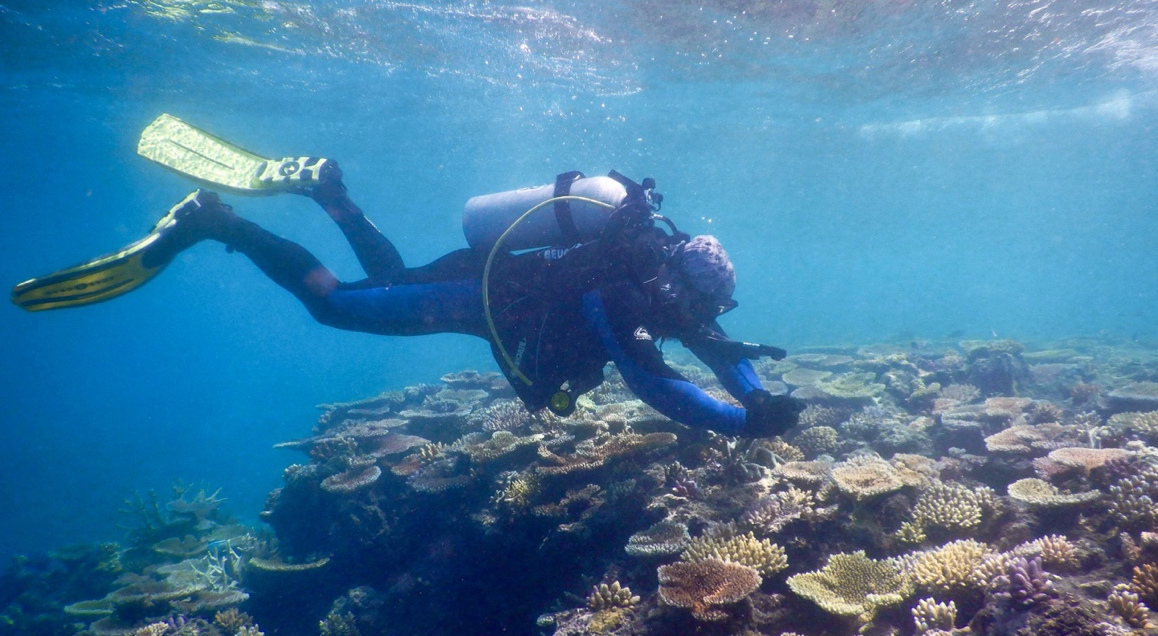
What are you next steps?
Currently, my focus lies in comprehending the recovery process of corals following bleaching events. Over the past three years, we have observed promising signs of coral cover restoration in Lizard Island. I am currently in the final stages of my PhD, where my aim is to analyse and grasp the dynamics of this recovery process, along with its potential implications for the essential functions that corals provide to reef-dependent communities.

